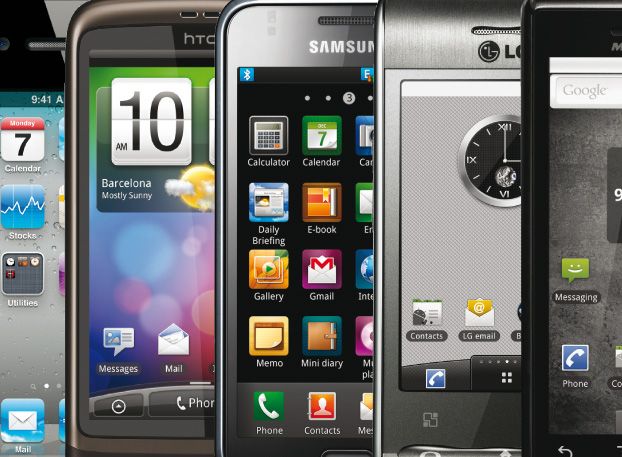A new survey from Cisco Systems has revealed that more enterprises are embracing the bring-your-own-device (BYOD) trend.
The survey also revealed that company executives are seeing significant benefits in employee productivity and satisfaction, while acknowledging the security and support issues for IT staffs.
BYOD Support
In its IBSG Horizon Study, released 16 May, Cisco officials found that 95 percent of survey respondents said their organisations allow employee-owned devices in some form in the workplace, and that 76 percent said BYOD was somewhat or extremely positive for their companies and challenging for their IT departments.
In addition, the average number of connected devices per knowledge worker is expected to grow from 2.8 this year to 3.3 by 2014.
In all, 600 IT and business leaders in the United States were questioned for the study.
 Cisco executives said the results of the survey indicated that the BYOD trend, which has grown rapidly with the consumer adoption of smartphones and tablets, is not going to go away, and that IT departments and executives are now looking for the best ways to manage the situation. The key will be a holistic approach, according to Cisco officials.
Cisco executives said the results of the survey indicated that the BYOD trend, which has grown rapidly with the consumer adoption of smartphones and tablets, is not going to go away, and that IT departments and executives are now looking for the best ways to manage the situation. The key will be a holistic approach, according to Cisco officials.
“As the number of devices being brought into work increases, organisations need a comprehensive mobility strategy,” Padmasree Warrior, senior vice president and CTO for Cisco, said in a statement. “By leveraging the intelligent network, organisations can now provide their employees with the benefits of working anywhere, any time: in other words, ‘work your way.'”
Vendor Offerings
Cisco and other networking and collaboration technology vendors – including Juniper Networks, Hewlett-Packard, Avaya and Extreme Networks – over the past year have aggressively expanded their offerings to give enterprises solutions for securing and managing their corporate networks and data as more employees use their personal mobile devices for work.
For its part, Cisco in March announced new tools designed to give businesses that comprehensive approach to BYOD, and included key enhancements to its Identify Services Engine. In addition, Cisco officials on 16 May outlined what they are calling a set of Smart Solutions that are designed to help businesses gain the benefits of increased mobility in the workplace while reducing the associated complexities. Included is the BYOD Smart Solution, which provides complete lifecycle management for BYOD, from securing data with a unified policy, enhancing collaboration tools for a greater user experience and simplifying operations with proactive management capabilities.
Other offerings include VXI Smart Solution for desktop virtualization environments and Remote Expert Smart Solution, an integrated offering that will enable virtual face-to-face meetings via immersive video as well as online form-sharing.
The Smart Solution offerings are part of a larger strategy called the Cisco Unified Workplace, which officials said is aimed at creating an environment where workers can access all the people and resources they need for their jobs from anywhere and on any device. Some applications, such as WebEx and Jabber, will be accessible via the device itself. Other applications and data will be accessible virtually through a desktop virtualization environment via Cisco’s Virtualisation Experience Infrastructure, or VXI.
Mobile Devices
Some of the other findings from Cisco’s BYOD study are that 84 percent of organisations provide some level of support for employee-owned mobile devices, while 36 percent provide full support for any device, including smartphones, tablets and laptops.
Illustrating the trend toward mobility, 78 percent of white-collar workers in the United States use a mobile device for work, and 65 percent require mobile connectivity to do their jobs.
Forty percent of respondents said that having a choice of devices was the top reason employees want to use their mobile devices at work, with the desire to do personal activities at work, and work activities on their personal time, being second. Employees also are willing to pay for such freedom: The study found that Cisco employees pay an average of $600 out-of-pocket for devices that will help them in their work.
There’s also a financial gain to BYOD for businesses, which can see annual benefits of $300 (£188) to $1,300 (£816) per employee, depending on the worker’s job.
The top challenges of BYOD for IT departments are security and privacy, as well as IT support for multiple mobile platforms. They key for businesses revolves around choosing the right governance and support models, according to the study: Only 14 percent of BYOD costs are related to hardware.
The survey also found that desktop virtualisation is gaining in popularity, with 98 percent of respondents saying they were aware of the technology and 68 percent saying that most knowledge worker jobs are suitable for desktop virtualisation. Half said their organisations were implementing a desktop virtualisation strategy.
Respondents said the top benefits of desktop virtualisation are business continuity by enabling employees to access applications through multiple devices and locations, increased employee productivity and reduced IT costs. That said, data protection – making sure that only the right people have access to sensitive company and customer data – is the top concern.
How much do you know about smartphones? Take our quiz.





